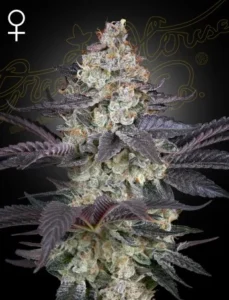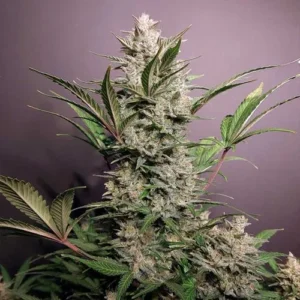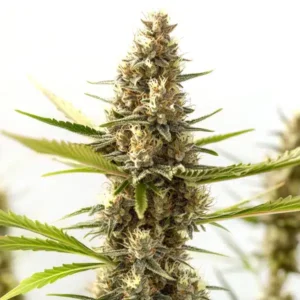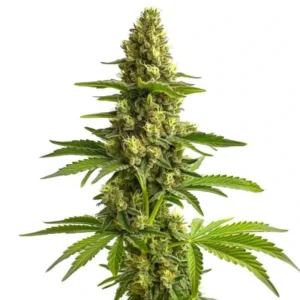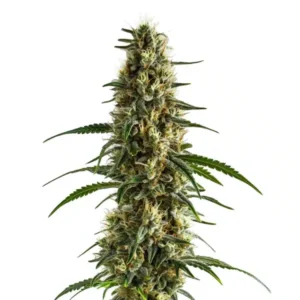The combination of antibiotics and THC can be a tricky subject for many. For those new to cannabis, it’s essential to grasp how these substances might interact. Even seasoned growers and users can find themselves questioning the safety of consuming THC while on antibiotics. When it comes to the effects of antibiotics and THC interaction, knowledge is power.
Antibiotics are medicines that fight infections caused by bacteria. They can be lifesavers, but they also come with their own set of rules. THC, the main psychoactive compound in cannabis, is known for its relaxing and euphoric effects. When considering THC consumption while on antibiotics, it’s crucial to know which antibiotics that interact with THC could pose safety concerns.
Recommended Strains
Ztrawberry
|
|
THC | 22% - 23% (Medium) |
|
|
Lineage | Runtz x AMS |
|
|
Type | Feminized |
|
|
Height | 7.22 ft | 2.2 m |
|
|
Yield Outdoor | 42.33 oz/plant | 1200 g/plant |
|
|
Flowering Time | 8 - 9 weeks |
|
|
Phenotype | 60% Indica / 40% Sativa |
|
|
Effects | Focused, Balanced, Relaxed |
|
|
Flavors | Sweet, Fruity, Lemon |
Auto Skywalker Haze
|
|
THC | 20% - 25% (Medium) |
|
|
Lineage | Skywalker Haze X Auto Amsterdam Amnesia |
|
|
Type | Autoflowering |
|
|
Height | 4.53 ft | 1.38 m |
|
|
Yield | High |
|
|
Yield Indoor | 1.8 oz/ft² | 550 g/m² |
|
|
Yield Outdoor | 5.29 oz/plant | 150 g/plant |
|
|
Life Cycle | 11 - 13 weeks |
|
|
Phenotype | 50% Indica / 50% Sativa |
|
|
Effects | Euphoric, Creative, Energetic, Powerful |
|
|
Flavors | Sweet, Earthy, Citrus, Lemon |
Let’s break it down with some real-life scenarios and practical advice. For instance, someone prescribed antibiotics for a bacterial infection might wonder whether using THC with prescribed antibiotics is wise. Understanding the balance between these two can help in making informed decisions.
Potential Interactions Between Antibiotics and THC
The interaction between antibiotics and THC isn’t well-studied, but some evidence suggests that they might influence each other’s effectiveness. Certain antibiotics could speed up or slow down the way your body processes THC. This could enhance or diminish the effects of THC, leading to an unexpected experience.
For example, macrolide antibiotics like erythromycin are known to interact with various drugs by affecting liver enzymes. These enzymes are also responsible for processing THC. Therefore, it’s wise to approach THC consumption while on antibiotics with caution. A change in how your body metabolizes THC could either heighten its psychoactive effects or reduce its efficacy.
Moreover, when considering potential interactions between medications and cannabis, it’s essential to note the variations among individuals. Genetic factors, lifestyle choices, and concurrent medications can all influence how the body responds. Knowing these variables helps in anticipating possible outcomes and managing expectations effectively.
It’s also worth mentioning that while some antibiotics might affect THC metabolism, others may have negligible effects. Keeping an open line of communication with healthcare providers ensures that you receive the most accurate advice tailored to your specific situation. This proactive approach can mitigate any potential THC and antibiotics safety concerns.
Real-Life Examples and Practical Tips
Consider a scenario where you’re using antibiotics for a tooth infection. You’re also a fan of the Lemon Diesel strain from Global Green Genetics, known for its uplifting effects. Before indulging, think about how the antibiotics might alter your usual experience. If you’re unsure, it might be best to start with a smaller dose of THC.
Another example is using THC for pain relief while on antibiotics. Maybe you’ve got a prescription for amoxicillin due to a sinus infection, and you’re eyeing the Northern Lights strain for its calming properties. The key here is to monitor how you feel and adjust your dosage as needed to avoid any adverse effects.
For those who cultivate their own cannabis, the potential interactions between THC and other substances require careful consideration. By experimenting with smaller doses or different strains, growers can observe how their bodies react without risking overwhelming effects. This method allows for a more controlled environment to study the interaction.
Practical tips also include keeping track of any side effects or changes in experience when consuming THC. A consistent log can provide insights into patterns and help identify factors that influence individual responses, guiding future consumption choices.
Effects of Antibiotics and THC Interaction
When cannabis and antibiotics interact, the effects can vary widely between individuals. Factors such as the specific antibiotic, the strain of cannabis, and your body’s chemistry all play a part. This unpredictability is why safety concerns around combining these substances are worth considering.
Some people report feeling more sedated when mixing cannabis with certain medications. Others might not notice much of a difference at all. It’s also possible for some substances to reduce the psychoactive effects of cannabis, leading to a less intense high. Be aware that the same strain can react differently depending on the medication you’re taking.
The interaction between these substances can also depend on the dosage and timing of both. Adjusting the timing to allow the body to process each one separately can help minimize unintended side effects. This strategic approach aids in maintaining a balanced experience.
Furthermore, individuals with preexisting health conditions might be more susceptible to pronounced interactions. Consulting healthcare providers about both THC consumption and existing health issues can prevent complications and ensure overall well-being.
Safety Concerns and Precautions
Safety should always be a top priority when using any substance, especially when mixing medications and THC. The first step is consulting with a healthcare professional. They can provide personalized advice based on your health needs and the specific antibiotics you’re taking.
It’s also wise to keep a journal of your experiences. Note any changes in how you feel after consuming THC. This can help you identify patterns and make informed decisions about future use. Keep in mind that not all medications will interact with THC, but staying cautious is always a good practice.
Beyond personal journaling, staying informed about the latest research on antibiotics and THC interactions can provide additional insights. As scientific understanding evolves, new findings may offer more concrete guidance on safe practices. Subscribing to trusted medical resources can keep you updated on relevant studies.
Additionally, discussing your THC use openly with your healthcare provider can lead to more tailored advice. This transparency ensures that your treatment plan considers all factors, avoiding potential conflicts between using THC with prescribed antibiotics and other medications.
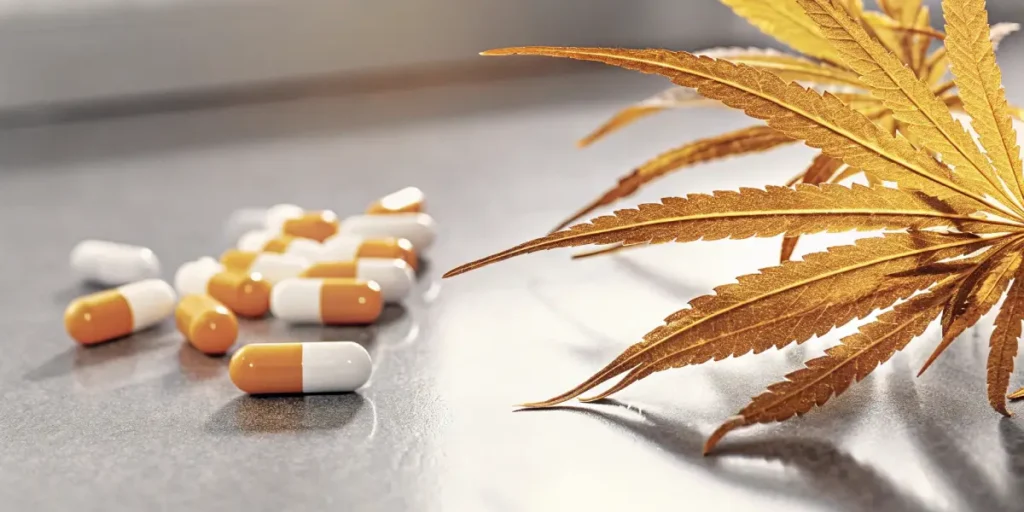
THC Consumption While on Antibiotics
Before consuming THC while on antibiotics, consider the timing. It might be beneficial to space out your doses to avoid any potential interactions. This approach allows your body to process each substance separately, minimizing the risk of adverse effects.
If you’re new to cannabis, starting with a low-THC strain like CBD Harlequin from Global Green Genetics might be a good option. This strain offers a balanced experience with less psychoactivity, reducing the likelihood of unwanted interactions.
For experienced users, experimentation with different strains and dosages can lead to a more informed understanding of how THC interacts with other substances. However, this should be done cautiously, with an emphasis on observing and recording any changes in effects or side effects experienced.
Moreover, engaging in discussions with community forums or support groups can provide additional anecdotal insights. Sharing experiences with others who have navigated THC consumption alongside other treatments can offer practical tips and reassurance, fostering a collective knowledge base.
FAQs About Antibiotics and THC
Is it safe to use THC with prescribed antibiotics?
Using THC with prescribed antibiotics can be safe for some individuals, but it depends on the specific antibiotic and the individual’s health condition. Certain medications can alter how your body processes THC, which might change the effects you experience. Consulting with a healthcare professional is always recommended to ensure safety.
For those who decide to use THC while on medication, monitoring your body’s reaction is crucial. Keeping track of any changes can help you adjust your consumption accordingly. Remember, what works for one person might not work for another, so personalized advice is key.
Additional measures for safe use include discussing your complete medication list with your healthcare provider. This transparency helps in identifying potential interactions with THC and adjusting your treatment plan accordingly. It ensures that your health is safeguarded during your course of treatment.
Furthermore, understanding your body’s baseline reaction to THC before introducing new medications can provide a useful comparison point. This knowledge helps in detecting any deviations in your typical experience, allowing for timely adjustments to your consumption habits.
What are the effects of antibiotics and THC interaction?
The effects of antibiotics and THC interaction can vary. In some cases, antibiotics might increase the psychoactive effects of THC, leading to heightened sensations. In other situations, they could reduce THC’s effects, resulting in a milder experience. The reaction depends on various factors, including the type of antibiotic and the cannabis strain used.
It’s important to note that individual response plays a significant role. Some people might not notice any difference, while others could experience significant changes. Starting with a low dose and gradually increasing allows you to gauge your body’s response safely.
In addition to dosage and strain, lifestyle factors like diet, hydration, and overall health can influence the effects of antibiotics and THC interaction. Ensuring a balanced lifestyle may mitigate potential adverse effects, creating a more stable foundation for your body’s response.
Moreover, keeping informed about common antibiotics that interact with THC can prevent unexpected experiences. Awareness empowers you to make informed choices, aligning your THC consumption with your antibiotics regimen for optimal outcomes.
Are there antibiotics that interact with THC?
Yes, certain antibiotics are known to interact with THC. Macrolides like erythromycin can affect liver enzymes responsible for metabolizing THC. This interaction might lead to changes in how THC affects you, either intensifying or diminishing its effects.
Being aware of these potential interactions can help you make informed choices. If you’re prescribed a new antibiotic, it’s a good idea to discuss any cannabis use with your healthcare provider to mitigate risks and ensure a smooth experience.
Additionally, some antibiotics may not have noticeable interactions with THC, which can provide more flexibility in your consumption choices. Understanding which antibiotics are less likely to interact can help in planning your cannabis use during treatment.
Furthermore, exploring alternative methods of consuming THC, such as edibles or tinctures, may offer different interaction profiles with antibiotics. Experimenting with these methods under professional guidance can broaden your options while maintaining safety.
Should I avoid THC consumption while on antibiotics?
Whether to avoid THC consumption while on antibiotics depends on personal preference and medical advice. Some individuals may choose to abstain to avoid any potential interactions, while others may proceed with caution. The key is to find a balance that maintains your health and well-being.
If you decide to use THC, starting with a lower dose is advisable. This approach allows you to observe any interactions and adjust your consumption as needed. Always prioritize your health and consult a healthcare professional if you’re unsure.
Beyond initial adjustments, continually reassessing your experience throughout the antibiotic course can provide valuable insights. Regularly evaluating how you feel will guide necessary changes to your THC consumption strategy, ensuring a safe and enjoyable experience.
Moreover, understanding your personal threshold for THC and antibiotics safety concerns will help you establish a comfort zone. Balancing these substances under professional guidance supports both effective treatment and enjoyable cannabis experiences.
How can I safely use THC with antibiotics?
To safely use THC with antibiotics, consider timing and dosage. Spacing out your doses can help prevent any adverse interactions. Additionally, starting with a low dose of THC allows you to monitor your body’s response and make necessary adjustments.
Choosing the right strain is also essential. Strains with lower THC content, such as those high in CBD, may offer a gentler experience with fewer interactions. Always keep track of how your body reacts and consult with a healthcare provider for tailored advice.
Integrating mindfulness practices into your routine can enhance your awareness of how THC and antibiotics interact in your body. This heightened self-awareness can guide more informed decisions about dosage and timing, contributing to safer consumption habits.
Furthermore, fostering a collaborative relationship with healthcare professionals ensures ongoing support. Regular check-ins provide opportunities to discuss your experiences, refine strategies for THC consumption while on antibiotics, and maintain overall health and safety.


